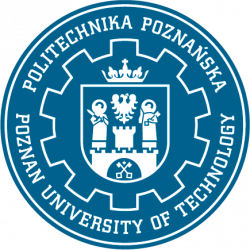The Institute of Transport, along with five other units, belongs to the structure of Faculty of Civil and Transport Engineering at Poznań University of Technology. The Institute was established in January 2020 as a result of a merger of Divisions that were formerly parts of other organizational units of the Faculty, i.e. the Institute of Internal Combustion Engines and Transport, as well as the Institute of Working Machines and Motor Vehicles. The Institute of Transport consists of the Division of Transport Systems, Division of Rail Transport, as well as Division of Universal Design and Mobility Devices.
The activity of the Division of Transport Systems is focused on conducting research aimed at shaping sustainable transport for municipalities, cities and regions as well as optimization of logistic processes in modern enterprises. Following topics are undertaken:
- traffic simulation and analysis,
- planning of transport infrastructure and its effective use,
- shaping public passenger transport network and assessing its efficiency,
- proposing new ways of transport system organization that takes into consideration changes in the mobility of residents and in urban logistics (e.g. focus on e-mobility and other forms of emission-free urban transport, sharing means of transport, new solutions for delivery of loads on so-called last mile),
- providing companies with tools for optimizing logistics processes (including organization of deliveries and warehousing, TSL service quality assessment, efficiency of goods distribution, fleet management strategies, design and improvement of business processes).
The Division of Rail Transport specializes in research in the area of:
- safety in rail transport (including risk management and risk assessment in transport), authorizing rail vehicles to service, as well as modeling and testing vehicle movement process,
- diagnostics of rail vehicle and track, including vibroacoustic tests, assessment of rail infrastructure surface condition, tests of friction pairs in rail vehicles and bench tests of complete brake systems,
- monitoring the technical condition of rolling stock and infrastructure,
- design and dynamics of rail vehicles, in particular simulation and tests of their dynamic properties, analysis of wheel-rail cooperation and design of vehicles and their components.
The activity of the Department of Universal Design and Mobility Devices is closely related to the development of basics of machine construction, with particular emphasis on the principles of universal design. Scientific and research activities focus primarily on the following areas:
- computer studies of human anthropometric and biomechanical features related to rehabilitation process and physical training, as well as designing technical means for seniors and people with disabilities,
- modeling, development of design methods and structural theory, as well as computer design of drive technology systems and flexible connections.

